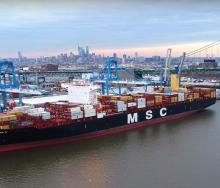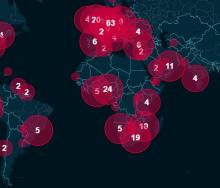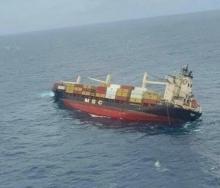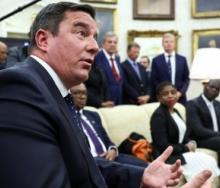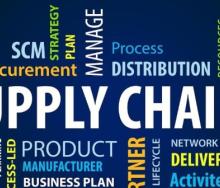South Africa and other emerging economies that face the prospect of double-digit tariffs proposed by US President Donald Trump would only hurt themselves if they responded with reciprocal tariffs.
This was the warning Absa Chief Investment Officer, Ricardo Smith sounded during an analysis of global trade dynamics at the Road Freight Association’s 50th Anniversary Conference in the Central Drakensberg in KwaZulu-Natal over the weekend.
Smith highlighted the self-destructive nature of retaliatory economic policies, particularly in response to US tariffs.
South Africa faces the prospect of a 31% tariff regime for goods exported to the US with the exception of some key minerals it requires in its manufacturing processes, a move President Cyril Ramaphosa has attempted to avert by visiting Trump to discuss the matter along with several of his ministers and local business and labour leaders last week.
"The popular rhetoric could be retaliate, but you actually levy those tariffs on your own economy,” Smith said.
He revealed the critical economic paradox: countries attempting to push back against US trade policies ultimately harm themselves more than their intended target.
"By their very nature, tariffs are inflationary," Smith said.
He said the immediate consequence of such tariffs was that it formed a policy bind where governments faced an impossible choice.
"If you try and contain your inflation, you further hamper your economy. If you try and support your economy, you further fuel inflation higher.”
He said the most strategic approach was counterintuitive.
"The best thing to do with tariffs is actually not to retaliate, and deal with it as it comes, because it really doesn't work for all."
Geopolitical tensions continued to create uncertainty, Smith said, with the US-China dynamic remaining a global pressure point, causing potential ripple effects for emerging markets like South Africa.
"From a China perspective, they're not particularly worried about inducing inflation in their economy."
This was because China’s inflation is low giving it unique economic flexibility.
He said the US-China trade landscape revealed complex dynamics where Mexico and Canada had now overtaken China as the US's primary trading partners and effective tariff rates against China had fallen below 10%.
"The US economy is now expected to grow sub 2%, China at around 4.5%, the SA economy at the start of the year we were expecting above 2% now we've shifted to sub 2%.”
He said South Africa’s agricultural, mining, and manufacturing sectors faced increased global competition, and while some sectors might pivot, the overall economic outlook remained constrained.
Infrastructure remained a critical challenge. The transport sector has been the second-fastest-growing sector after finance, but road freight continued to dominate over rail, indicating systemic inefficiencies, Smith said.
He said the government's infrastructure spend offered a potential lifeline. Approximately 39% of the projected R1 trillion infrastructure budget was allocated to transport and logistics. However, Smith said implementation rather than allocation was the challenge.
He criticised the South African Reserve Bank's conservative approach to interest rates.
"If I were a member of the Monetary Policy Committee, I would have voted for more cuts than we've experienced."
He said although the US Federal Reserve appeared have halted it rates cutting cycle, South Africa should follow its own pathway.
“From an SA perspective there is far greater agreement in the markets over the next 12 months or so that we will be seeing two rate cuts of 25 basis points each. Our inflation prints have been below Monetary Pricing Committee’s (MPC) range of 3-6% and you are likely to see quite a lot of policy divergence.
“I think in the past, it was a lot easier for the MPC to mirror what the US does, because there was some streamlining of thoughts about how the world works, about how economics works. Quite a lot of the policies in the US are unusual so we can't follow those policies. And if we don't follow those policies it means we actually have to be a bit brave, from a fiscal and monetary perspective, to be slightly divergent, because our environment is slightly different.
"We can't simply mirror global economic strategies. Our environment is unique, and our policy approach must reflect that."
Smith was critical of knee-jerk economic responses saying that South Africa could have benefited from growth in the global economy over the past ten years.
"We could have grown our economy a lot better and participated in global growth. We've scored quite a lot of own goals along the way.
"For the last three or four years, the globe has been preparing for this recession, which never came."
He said this had resulted in companies maintaining substantial capital buffers and showing surprising resilience.
"There is quite a lot of healthy balance sheet out there, quite a bit of resilience in the system.
"In a tough environment, you get your basics right. You control what you can control."


